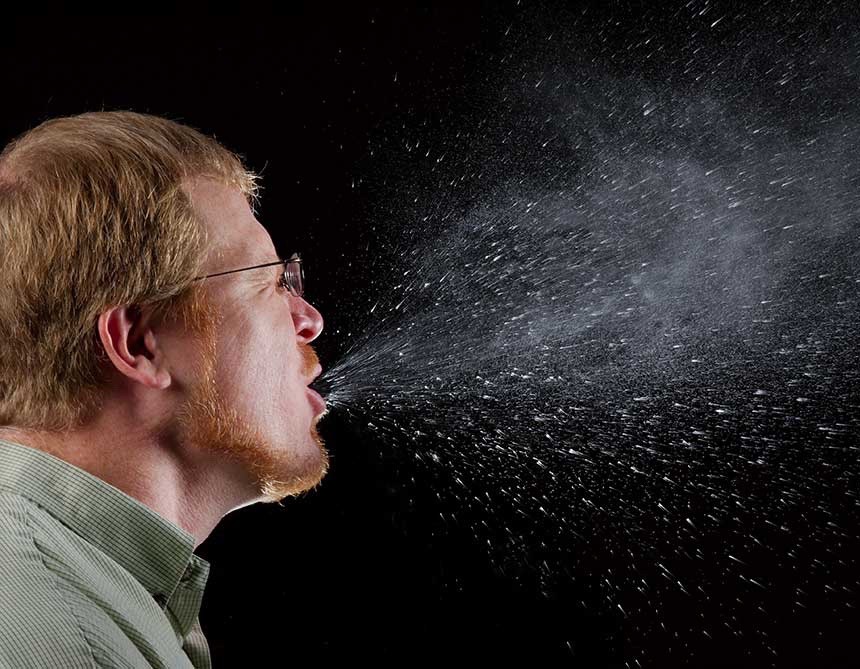A cough is an impulse action to clear the airways of mucus and irritants, as smoke or dust. It is rarely a sign of something serious.
A dry cough means it is sickly and does not produce any thick mucus (phlegm). A chesty cough means a thick mucus is produced to aid clear the airways.
What can cause a cough?
Here are some of the main causes:
- Short-Term (Acute) Coughs
The most common causes include:
- An allergy, such as hay fever or allergic rhinitis;
- An upper respiratory tract infection that usually affects the windpipe, throat, or sinuses. For example, a cold, flu, sinusitis, whooping cough, laryngitis;
- A lower respiratory tract infection that usually affects the lungs or lower airways. For example, pneumonia or acute bronchitis;
- Inhaled smoke or dust, and
- A flare-up of some long-term condition, as a chronic obstructive pulmonary disease, asthma, chronic bronchitis.
In rare cases, an acute cough can be the first sign of a health disorder that causes a chronic cough.
- Persistent (Chronic) Coughs
The most common causes include:
- Asthma;
- An allergy;
- A long-term respiratory tract infection, as chronic bronchitis;
- Smoking;
- Postnasal drip (usually caused by sinusitis or rhinitis);
- Bronchiectasis (a condition in which the airways of the lungs become atypically);
- A prescribed medicine (usually medicines for treating cardiovascular diseases and high blood pressure), and
- Gastroesophageal reflux disease, or GORD (a condition in which the throat is irritated from leaking abdominal acid).
Infrequently, a chronic cough can be a symptom of a more severe condition, such as heart failure, pulmonary embolism, tuberculosis, or lung cancer.
- Coughs in Children
Coughs in children usually have similar causes to those that we mentioned before. For example, asthma, GORD, and respiratory tract infections can also affect children.
Causes that are common in children include:
- Croup (it causes a harsh sound, called stridor, and distinctive barking cough when the child breathes in);
- Bronchiolitis (a respiratory tract infection, which is mild and generally causes cold-like signs), and
- Whooping cough (“whoop” sounds with every intake of breath after short or long coughing).
Rarely, a chronic cough in a child may be a sign of a severe long-term condition, as cystic fibrosis.
When to See Your Doctor
Usually, there is no need to visit a doctor if you or your kid have a mild cough for 1-2 weeks. However, you should see your doctor if:
- Your cough is getting worse and severe
- You have had it for longer than 3 weeks
- You experience shortness of breath, chest pain, cough up blood or breathing difficulties.
- You have symptoms as swelling or lumps in your neck, unexplained weight loss, or changes in your voice.
Conclusion:
These causes can help you prevent a cough, understand the condition and treat it right. Seek medical help if you have some of the symptoms described in the last paragraph.

